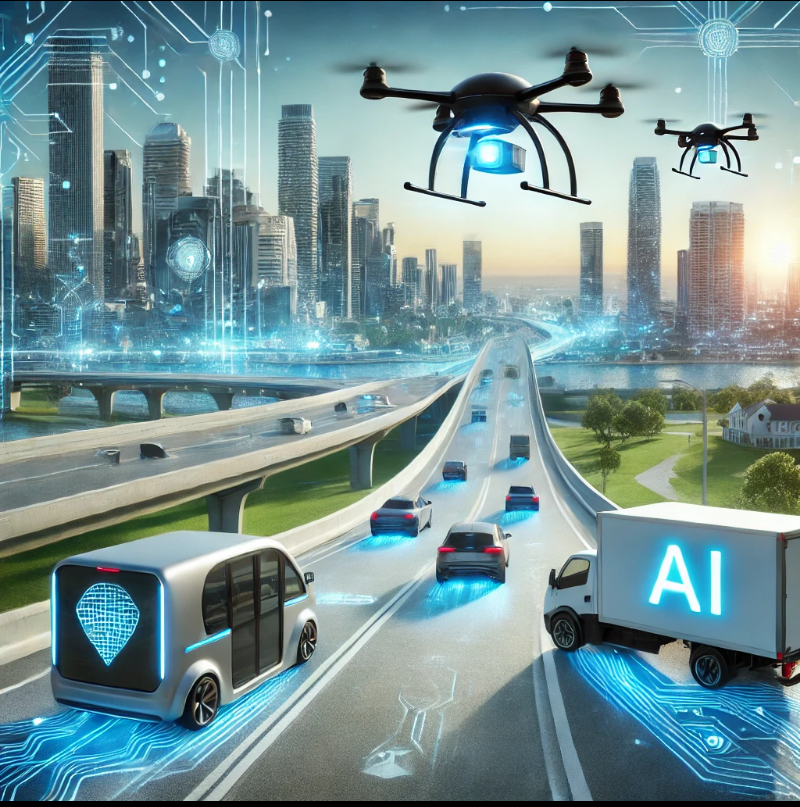
Unveil how AI is driving the future of autonomous transportation and logistics, highlighting key projects and the industrial transformations underway.
Autonomous systems are no longer a futuristic concept; they are a present-day reality, fueled by advancements in artificial intelligence (AI). From self-driving cars to AI-driven drone deliveries, the transportation and logistics industries are experiencing a paradigm shift. As industries adopt AI to manage everything from fleet operations to last-mile delivery, the impact is profound.
AI-Driven Autonomous Vehicles
Autonomous vehicles (AVs) rely on AI systems to perceive their environment, make real-time decisions, and navigate safely without human intervention. Companies like Tesla, Waymo, and Uber are pioneering self-driving technology, with Tesla’s Autopilot and Full Self-Driving (FSD) packages being prominent examples. AI in AVs uses deep learning models to interpret data from cameras, sensors, and radars, allowing the vehicle to make complex decisions in real time, like changing lanes, navigating through intersections, or avoiding obstacles.
Industrial Impact on Logistics and Supply Chains
AI is not just revolutionizing personal transportation; it’s transforming industrial logistics. AI-powered robots and autonomous delivery drones are becoming key players in the supply chain. For example, Amazon’s drone project, Prime Air, aims to deliver packages in 30 minutes or less, powered by AI that enables drones to navigate autonomously. In warehouses, AI-driven robots are enhancing productivity and reducing human error by sorting and transporting goods with precision.
Challenges and Ethical Considerations
Despite the advancements, autonomous transportation faces significant challenges, particularly in regulatory and ethical arenas. Accidents involving AVs raise concerns about accountability—should the carmaker, AI developer, or driver bear responsibility? Ethical dilemmas also arise when AI systems must choose between unavoidable acident scenarios, questioning how they should be programmed to make life-and-death decisions.
The Road Ahead
AI’s role in autonomous systems will only grow as technology advances and regulations adapt. Innovations in 5G, edge computing, and quantum processing will bolster the capabilities of autonomous vehicles, drones, and industrial robotics. The future promises more efficient transportation networks, reduced traffic accidents, and transformed urban environments, making AI a key driver in the transportation revolution.
A Smarter, Safer, and More Efficient Future
AI is setting the stage for a revolution in transportation and logistics, with autonomous vehicles and drones poised to transform industries. These technologies promise to make transportation safer, reduce congestion, and optimize supply chains in ways previously unimaginable. However, while the potential for AI-driven autonomous systems is immense, it will require careful regulatory oversight, continued innovation, and public acceptance to fully realize its benefits. As industries push the boundaries of what AI can achieve, autonomous systems will soon become an integral part of our daily lives, driving both economic growth and societal change.


